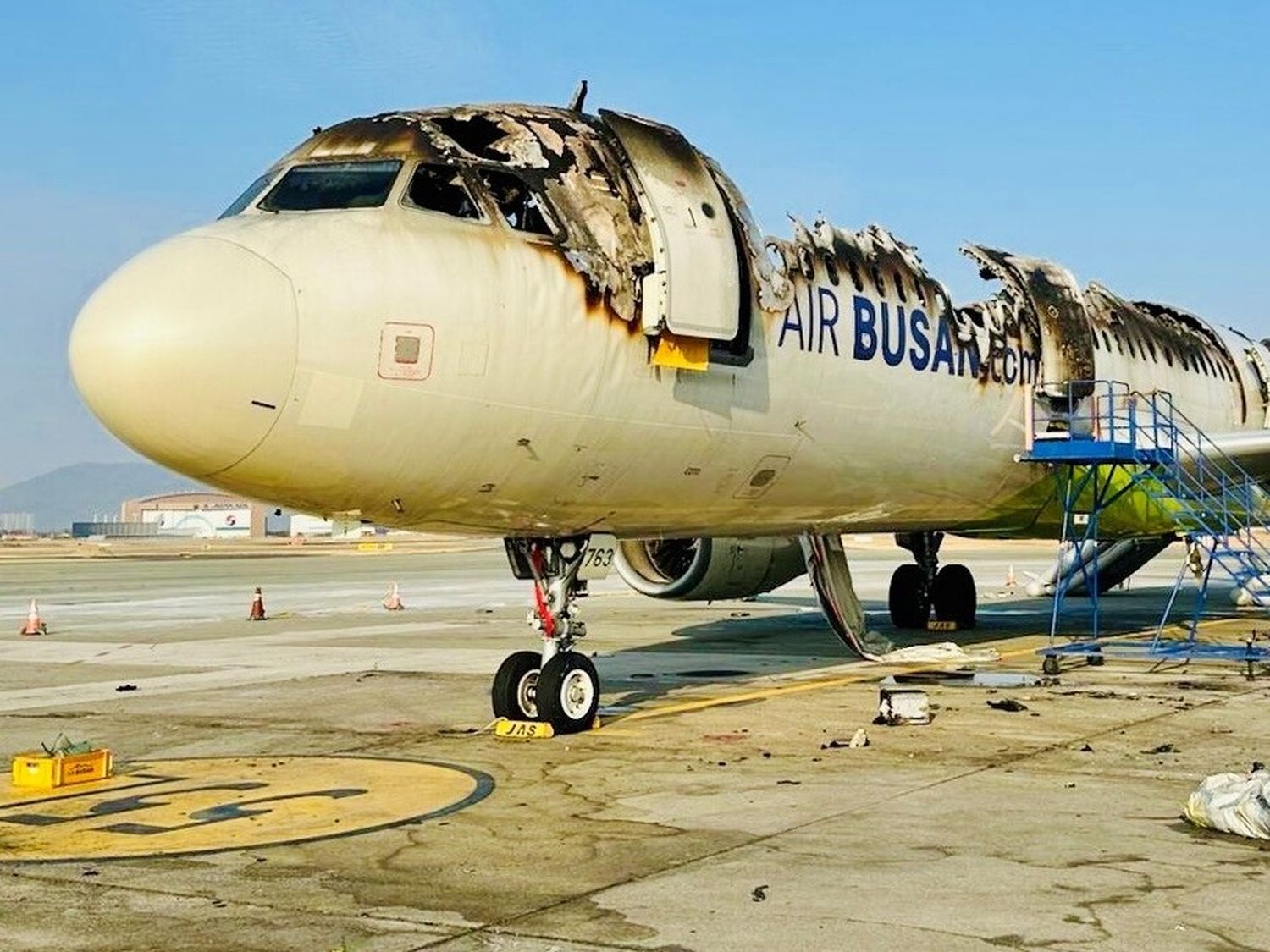The January 28, 2025, fire aboard an Air Busan Airbus A321 at Gimhae Airport, South Korea, has reignited concerns about the risks of transporting lithium-ion batteries on commercial flights. The fire originated in an overhead baggage compartment, forcing the crew to evacuate 169 passengers and 7 crew members via emergency slides.
While there were no fatalities, the incident has prompted South Korean authorities to tighten regulations on lithium battery handling in air travel.
The Fire and Emergency Evacuation
According to passengers, the fire broke out minutes before takeoff when a flight attendant noticed smoke coming from an overhead bin in the rear of the cabin. The crew responded quickly, using fire extinguishers to contain the flames, while the captain ordered an immediate evacuation.
Footage captured by passengers shows travelers sliding down emergency chutes on the tarmac, some leaving their carry-on luggage behind. Several passengers suffered minor injuries, including sprains and bruises, but the crew’s swift action prevented a major tragedy.
A preliminary investigation suggests that a portable battery pack may have been the source of the fire, though experts are still analyzing whether the device complied with international safety regulations.
New Lithium Battery Safety Measures in South Korea
In response to the incident, Air Busan has introduced stricter lithium-ion battery policies for carry-on luggage. As of February 7, 2025, the airline has banned passengers from storing battery packs in overhead compartments.
Key rule changes:
- Portable batteries must remain with the passenger at all times, either in hand luggage or pockets.
- Airline staff will check carry-on bags at the gate to ensure batteries are not stored in overhead bins.
- Special tags will be placed on baggage without batteries, allowing them to be stored overhead.
- Trial implementation on select routes before expanding to Air Busan’s entire network.
Additionally, South Korea’s Ministry of Land, Infrastructure, and Transport has ordered a nationwide review of airline safety protocols. Further regulations aimed at reducing lithium battery fire risks on flights are expected in the coming weeks.
The Global Lithium Battery Risk in Aviation
Fires caused by lithium-ion batteries have become a growing concern in the aviation industry. These batteries, found in phones, laptops, and power banks, can overheat and enter thermal runaway, producing smoke and intense flames that are difficult to control.
Globally, ICAO (International Civil Aviation Organization) regulations prohibit lithium batteries in checked baggage, but their presence in the cabin remains a challenge. Several major airlines, including American Airlines, Delta, and China Southern, have reported similar incidents, leading to stricter policies on these devices.
The Air Busan fire may set a precedent for tougher regulations in Asia, where air traffic continues to grow, and the presence of electronic devices on flights increases. As investigations into this latest incident continue, South Korean airlines are evaluating further policy adjustments to minimize future risks.


Comentarios
Para comentar, debés estar registrado
Por favor, iniciá sesión